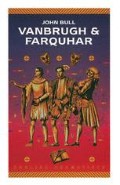Abstract
At the turn of the seventeenth century, Britain — as it was just about to become after a century of negotiations1 — was on the verge of becoming established as the first great capitalist state. It had had its revolution, when the last attempt by the monarchy to keep a stranglehold of power over the increasingly independent Parliament had resulted in Charles I’s public execution outside the Banqueting House, where he had formerly performed in masques. And, following the Commonwealth period of Oliver and Richard Cromwell, Charles II had been welcomed back in 1660 to take his place on the throne. Popular history places a great deal of emphasis on him as the ‘merry monarch’, the instigator of long years of hedonistic revelry. It is a view that was perpetuated by the theatres, which were officially opened after a series of puritan-inspired laws prohibiting performances had been passed in the Commonwealth period; and, in particular, by the comedies, whose celebration of sexual gratification and aristocratic privilege merely confirmed the worst fears of the puritan reformers about the dangers of theatrical licence. There were, and remain, unconfirmed rumours that a naked production of Lord Rochester’s Sodom had even been performed at Court.2
Preview
Unable to display preview. Download preview PDF.
Notes
cf. Eleanore Boswell, The Restoration Court Stage 1660–1702 (London: Allen and Unwin, 1932), pp. 134–5.
Any historical account will be partial and, effectively, an ideological construct, so that, for instance, my use of the term ‘Commonwealth period’ rather than the ‘inter-regnum’, as favoured by many historians of the period, is, in itself, suggesting a particular way of looking at events. Readers unfamiliar with the period could do worse than to look at the following works, all of them excellent in their way, and all offering rather different ways of considering historical change in the period: Christopher Hill, The Century of Revolution (London: Sphere, 1969)
J. H. Plumb, The Growth of Political Stability in England 1675–1725 (Harmondsworth: Penguin, 1969)
J. R. Jones, Country and Court: England 1658–1714 (London: Arnold, 1978)
Geoffrey Holmes, The Making of a Great Power: Late Stuart and Early Georgian Britain 1660–1722 (London: Longman, 1993).
cf. Shirley Strum Kenny (ed.), The Works of George Farquhar (Oxford: Clarendon, 1988), vol. I, pp. 5
Daniel O’Bryan, Authentic Memoirs... Of That Most Celebrated Comedian, Mr Robert Wilks (London, 1732), pp. 13-14, quoted in Eric Rothstein, George Farquhar (New York: Twayne, 1967), p. 17.
Eugene Nelson James, The Development of George Farquhar as a Comic Dramatist (The Hague: Mouton, 1972).
cf. Voltaire, Lettres Philosophiques, vol. XIX, quoted in Curt Zimansky (ed.), The Provoked Wife (London: Arnold, 1970), p. xiv.
Judith Milhous, Thomas Betterton and the Management of Lincoln’s Inn Fields, 1695–1708 (Carbondale: Southern Illinois University Press, 1979).
Thomas Wilkes, ‘The Life of George Farquhar’, in The Works of George Farquhar (Dublin, 1775), vol. I, p. xii.
Madelaine Bingham, Masks and Facades: Sir John Vanbrugh, The Man in his Setting (London: Allen and Unwin, 1974), p. 113.
Author information
Authors and Affiliations
Copyright information
© 1998 John Bull
About this chapter
Cite this chapter
Bull, J. (1998). Lives, Times and Theatres. In: Vanbrugh & Farquhar. English Dramatists. Palgrave, London. https://doi.org/10.1007/978-1-349-26508-4_1
Download citation
DOI: https://doi.org/10.1007/978-1-349-26508-4_1
Publisher Name: Palgrave, London
Print ISBN: 978-0-333-46233-1
Online ISBN: 978-1-349-26508-4
eBook Packages: Palgrave Literature & Performing Arts CollectionLiterature, Cultural and Media Studies (R0)

